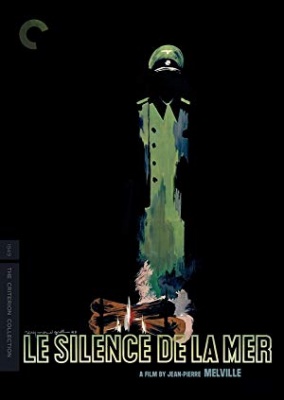Tišina morja
drama
Le Silence de la Mer, Francija, 87 min
Imdb ocena 7.7
Žanr: drama, romantični, vojni
Igrajo: Howard Vernon, Nicole Stéphane, Jean-Marie Robain, Ami Aaröe
Režija: Jean-Pierre Melville
Avtorji: Vercors (short story), Jean-Pierre Melville (adaptation)
Jezik: francoski, nemški, angleški

Slovenski opis filma:
Ciklus: Jean-Pierre Melville Francoski film, 1949 Režija: Jean-Pierre Melville Scenarij: Vercors, Jean-Pierre Melville Igrajo: Howard Vernon, Nicole Stéphane, Jean-Marie Robain V hišo ostarelega Francoza in njegove nečakinje se v času okupacije naseli mladi nacistični poročnik Werner von Ebrennac. Prebivalca uporniško ignorirata vsiljivčevo navzočnost, strmita predse in se ne odzivata na njegove poskuse komunikacije. Ebrennac pa kljub molku nadaljuje enostranski pogovor z njima in se v nasprotju s pričakovanji izkaže vljudnega in izobraženega. Dan za dnem jima pripoveduje o svojih pogledih na umetnost in politiko. Prepričan je, da okupacija vodi k premirju med Francijo in Nemčijo in da je nacistična oblast dobronamerna. Nekega dne Nemčijo in sebe primerja z likom zveri v pravljici Lepotica in zver – v tej zgodbi se kljub navidezni krutosti zveri izkaže, da je v bistvu dobra. Ebrennac se šele po premiku v Pariz sooči z zlom nacističnega režima. Kontroverzni roman Jeana Brullersa, po katerem je bila posneta ta neverjetno napeta drama – prvi Melvillov celovečerni film – je naletel na ogorčenje zaradi humanizacije nacista. Moralno sporočilo zgodbe je vendarle očitno: ne glede na to, kako človeški naj bi bili posamezni nacisti, je bila vztrajnost v uporu bistvenega pomena. Film je del ciklusa režiserja Jean-Pierra Melvilla, ki je bil tudi sam akter odporniškega gibanja.
Originalni opis filma:
1941 in a small town in Nazi occupied France. Against the will of its elderly male and his adult niece residents, the Nazis commandeer a house for one of their officers, Lt. Werner von Ebrennac, to live in for as long as he is in the area on Nazi business. As a figurative and literal silent protest against the Nazis and the officer, the uncle and niece do whatever is required of them while the officer is in their house, however they do not acknowledge his presence, living largely in silence whenever he is around. The officer treats the housing situation with care, like he is a guest. Although not a nightly occurrence, the officer begins an evening routine with his reluctant hosts: in his civilian clothes, he knocks on the door of the room in which they have convened for the evening, walking in shortly thereafter knowing that no acknowledgment will be made for him to enter, he visits with them for no more than five minutes before he bids them a good evening as he exits. During these visits, he speaks reverently about, among other things, culture - music and literature in particular as he is a composer and musician - his national pride, his love of France, and what he hopes will emerge from the war, namely a strong and free France, stronger than it was before the war, and the marriage between the French and German cultures which will enrich the lives of all Europeans. All the while, he makes no expectations from them, either to listen, or to answer if they are indeed listening. At the end of what ends up being his six month stay at the house, he does end up having a profound effect on the uncle and niece, despite that effect being largely unacknowledged, as his stay in France has a profound effect on him, opening up his eyes to the reality of the war based largely on his first ever visit into Paris.